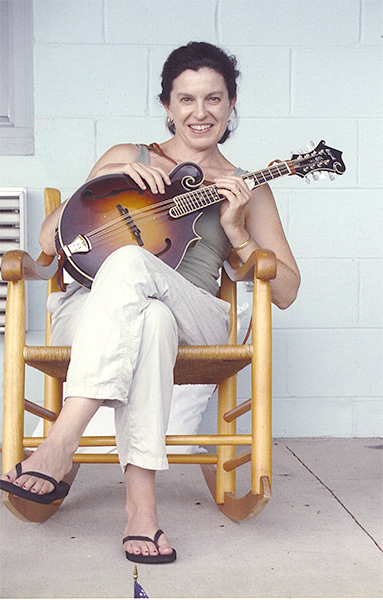 print preview
print previewback A.E. STALLINGS
Sympathetic Resonance
If memory serves, I encountered the poem “Stringed Instrument Collection” first in Claudia Emerson’s own voice at a reading in Sewanee at the Writers’ Conference. As someone who once spent a lot of time playing a stringed instrument—the violin—I was immediately captured by the subject matter and the personification of the instruments through the proper terms for their parts—the necks, the scrolled heads, the hollows of their bodies. I think it was only later that I encountered it on the page and came to realize it was a sort of sonnet, if unrhymed, although, come to think of it, some slant rhymes and assonances harmonize through the poem: “alone” and “mandolins,” “nights” and “Twilight Time,” “heads” and “dead,” “name” and “sustained.” And one of the most interesting: “dreadnoughts,” which somehow feels like a kind of aural anagram of “no wood is ever dead.” Some of these seem distant at sight, but hearing them aloud, there is a sense that one of these words sets the other vibrating, a resonance, like a room full of, well, stringed instruments buzzing faintly to a pure A 4040. The sonnet form is especially apt as well, with its slightly larger octave and its smaller sestet, much like the odalisque curves, lesser and fuller, of a guitar (or violin), only upside down.
 |
| Claudia Emerson at Graves Mountain Lodge |
Knowing nothing of guitars—or mandolins or mandolas—I am intrigued by the exotic terms “cutaway,” and especially “dreadnoughts.” For me, a dreadnought is, first and foremost, a battleship, but of course, etymologically a person who fears nothing, and, in a poem about mortality, again its vibration is, like the last word, “sustained.” One of the things I admire about this exquisitely crafted poem is that it doesn’t feel “crafted”: like a beautiful handmade violin, it feels alive. I think some of the way Claudia manages to achieve this Ovidian ideal—ars est celare artem—is by not overtuning the poem. Twilight Time is an adumbration of mortality, but Birdland just feels like a detail taken from life. Cutaways and dreadnoughts suggest the mortal human body, but an upright bass or a jazz guitar are more literal instruments.
I am assuming the “you” of the poem is Claudia’s husband (and now widower), Kent Ippolito, who is a very accomplished musician. (Indeed, he might well have performed on an instrument at the same reading.) Late Wife, the book this sonnet is taken from, traces the dissolution of one marriage, and the discovery of a new love. Claudia’s first husband is lost to her by divorce; Kent’s wife had died of lung cancer. (She is present perhaps in the “laugh” of the penultimate line, but also more chillingly the “cough.”) The wood that is never dead, even when transformed by heat to fire and smoke suggests to me a cremation. The extreme enjambment from that last line in the octave, to the “even if it’s gone to fire and risen as heat,” is a sort of turn from death and mortality to a kind of resurrection. Yet the poem does not really offer us resurrection and immortality, no consolation so straightforward. It offers us instead something else: tradition, which means literally to hand across, and hear, the handing on of music and life from one generation to another. (I think of the torch relay race metaphor in Lucretius.) The sound boxes of the stringed instruments become the hollows of bodies in which our voices echo. But of course the tour de force of the poem is its last word choice, “sustained,” which suggests not only a musical note held at maximum intensity, singing through time, but also the love itself that sustains us. ![]()